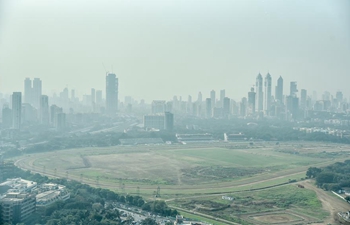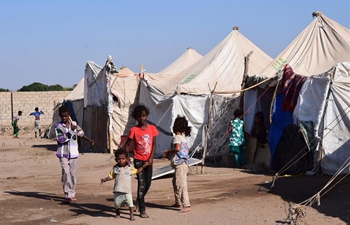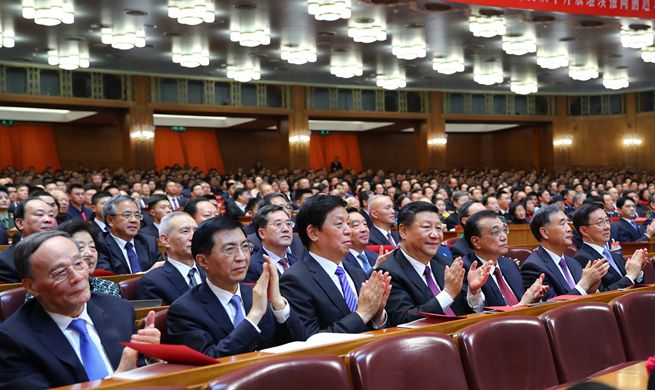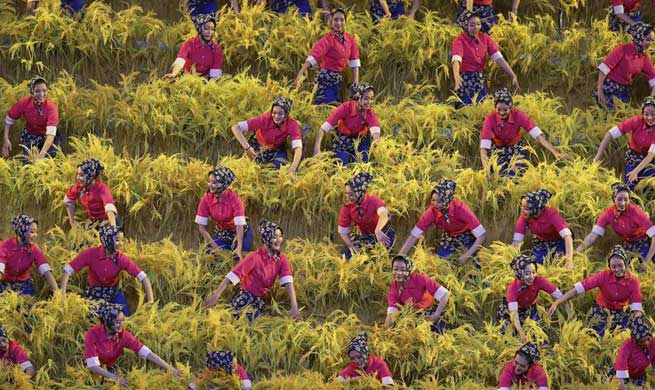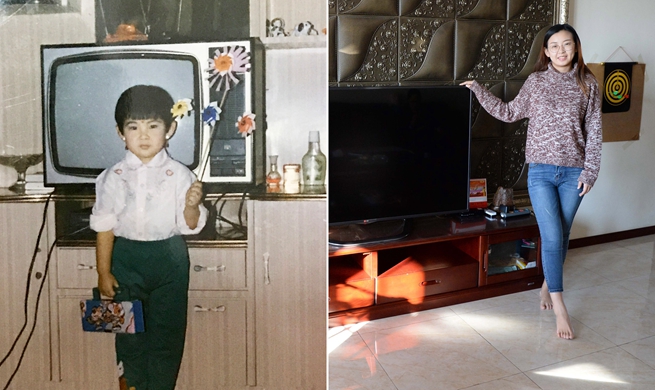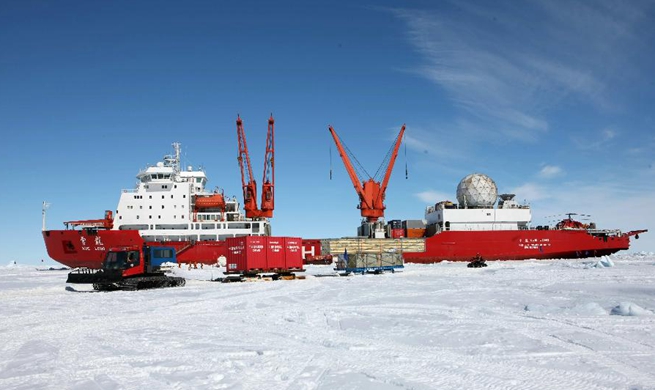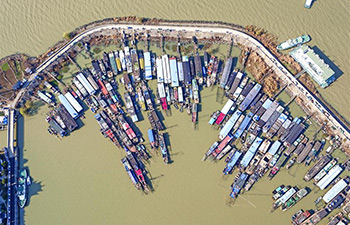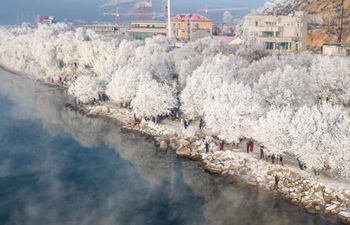XINING, Dec. 15 (Xinhua) -- Residents in the city of Yushu are familiar with a sweet melody that is played every day at dawn. Many might not be aware of the Disneyland song "It's a Small World," but when the sound begins, they know a garbage truck will appear.
Garbage trucks are new to the locals, so are waste treatment plant, sanitation workers, sewage treatment and heating system in this city on the Qinghai-Tibet Plateau, with an altitude of 4,500 meters above sea level.
Located in the Tibetan Autonomous Prefecture of Yushu in northwest China's Qinghai Province, Yushu has a population of over 111,000, and nearly 95 percent of them are ethnic Tibetans.
On April 14, 2010, a magnitude-7.1 earthquake struck Yushu, toppling thousands of houses and leaving around 3,000 people dead or missing, and more than 10,000 injured.
Thanks to support from all over the country, the city has been rebuilt over the past few years, from a remote, backward town to a modern city.
The city has seen new buildings with Tibetan characteristics, new hospitals, commercial areas and broad avenues emerge out of the debris, standing in striking contrast to the cityscape before the earthquake.
"There was very little urban construction in the city before the earthquake. The streets were packed with cars, pedestrians and yaks. I've never heard about a waste treatment plant or heating system. We used to just throw our trash into rivers," said Ngange.
"Our lives have changed greatly. We have now modern schools and hospitals, and the Yushu Airport has shortened the distance between the city and the world," he added.
Tseyang Tsang, a 30-year-old mother of three kids, said life has become much better and more convenient.
"There wasn't a nursery in the city before. Housewives needed to take care of their kids while doing housework. But now I can send my kids to the nursery and then go shopping. The market is just a short walk away from my home, and it sells products from across the country," she said.
Ju Chagxi, director of Yushu's urban construction bureau, said there were hardly any tall buildings in the town. Most buildings were constructed using dirt and wood.
"I remember the roads were very narrow and some were only able to let motorbikes pass through," Ju Chagxi said, adding that people suffered power outages frequently, carried water from wells and burned yak dung in the winter for heating.
According to the city's urban construction and management authorities, more than 1 million square meters of residential areas have been developed to relocate about 14,000 households which had been affected by the earthquake. So far, 15 schools, 10 hospitals, 10 iconic buildings, streets and roads, a leisure square, a museum, and an art center have been completed and put into use.
Water and sewage pipe networks have been completed, too, while the gas pipe network is under construction.
"As a participant and a beneficiary of the construction of the new city, having personally experienced the earthquake, I really believe the new Yushu has experienced a 20-year leap in city development over the past few years. Our citizens are much happier now," said Ju Chagxi.
In the process of reconstruction, Beijing has played a significant role, bringing talents from a wide range of fields including city planning, urban construction and management, and pouring tremendous investment into the construction of infrastructure.
"Beijing experts coming to Yushu have done their utmost to improve local people's living conditions, help lift impoverished residents out of poverty, and protect the local environment," said Wang Duwei, who heads a Beijing team in charge of poverty relief in Yushu.
In recent years, Yushu has seen a growing number of domestic and foreign tourists since the city has pushed tourism to the forefront of its economy.
"The prefecture is home to the headwaters of the Yangtze, Yellow and Lancang (Mekong) rivers. It is also home to the Hol Xil Nature Reserve and the ancient Tang-Tibet Road, linking inland cities with Qinghai, Tibet, Nepal and India during the Tang Dynasty (618-907). So tourism will become a vital engine of the new city's economy," said Ashak Yumpon, director of the prefecture's tourism bureau.
The director said Yushu is expected to be built into an international tourist destination.
Wu Dejun, the prefecture Party chief, said the reconstruction of Yushu would not have been done without support from all over the country.
"We will protect the sources of the major rivers and the ecological environment while developing the economy," Wu said.




